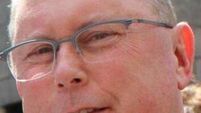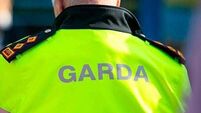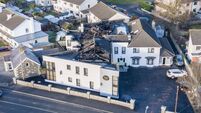Francis Taaffe – the Athy man working on some of your favourite TV shows
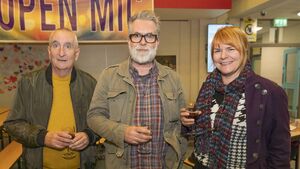
Francis Taaffe (centre) at a recent screening of Kneecap in Athy with Colm Walsh and Amanda Webb Photo: Aisling Hyland
“I won’t be booking my tickets yet!” laughed a very pragmatic professional, Francis Taffe (54) Art Director of Irish bilingual smash movie , and Athy native.
Francis was responding to the naïve question of your reporter wondering if he had booked his tickets to the Oscars ceremony in LA in February, but he quickly put us right.
“Ireland has put us (Kneecap) forward as our nomination in the ‘Best Foreign Film’ category, and there’s what? 197 countries in the world? There is a long list, and still a long way to go if it happens,” he smiled.
Very quietly this Athy native has, over the last 30 years, patiently built up a body of work in the background of TV and movie sets to have seen his name roll past at the end of things like , , , and the iconic .
“I did the three seasons over four years on Derry Girls; I was on that film for the full run, while everybody else came and went,” he said.
“The first season nobody really noticed, but by the time we got to the second season we knew, and we’d all be up in the office laughing out loud at the script,” he said.
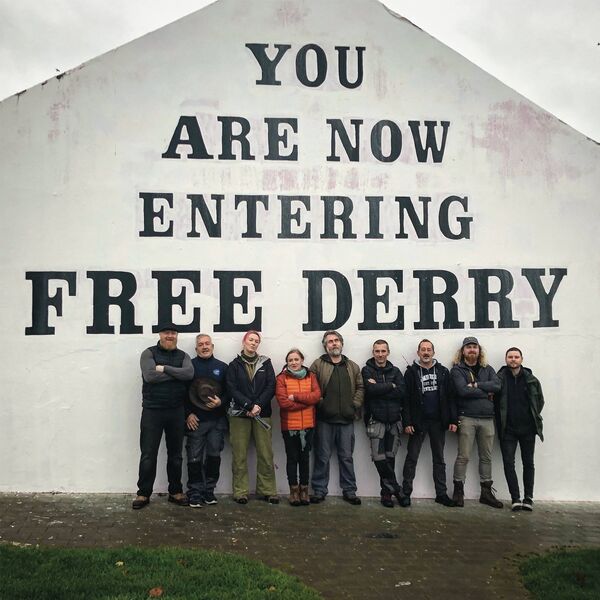
Francis began his career as a film student at Dun Laoghaire College of Art and Design between 1988 and 1992.
“It was a small little course, maybe 15 of us, and it was all analogue, no digital.
“It was all shot on film and I remember physically cutting celluloid to edit.
“Then I got my first full-time job at Courtyard Films (Irishtown, Dublin 4) where we shot corporate videos and audition tapes, and when I got back (to the industry) it had all changed and gone digital,” he explained.
The asked him when was his breakthrough production, but Francis preferred to liken his career to the boiling frog metaphor — you don’t really notice it until you’re there.
“I slogged and slogged away, and it was probably 2008 before I became an art director. Very few people, especially behind the camera are an overnight success,” he said.
“I mean, the guy who directed was a journalist on Rich Peppiatt, before he started all this,” he said.
Francis then explained why he now working predominantly working in Northern Ireland these days. He has just finished with the film – whose Belfast premiere he missed because “I hate watching my work on screen” – before returning next week to take up the third series of PSNI drama .
“Nicola Moronely from Naas is my boss, the production designer, and I run her art department,” he said.
“We began working together in Galway at TG4 about 14 years ago, and she lives in Belfast.
“It’s a very small industry up north and down south, so if you can get the job done on time, and on budget, you get the job, and so that’s how I got it,” he explained.
And as to exactly what he does?
“The easiest way I could describe it, if you could erase the actors from the frame, I’m responsible for everything else in it,” he said.
“As well as manage the budget, run the schedule, and design if I have to.
“Everything you see in a film we’re responsible for, and if you want any changes, it depends on how good your art department and designer are, and can you afford to change everything, particularly if it’s a period drama or science fiction,” he said.
He described as a “period piece, just as difficult as a Victorian drama”.
“Yes, it is set in living memory, but it is still historical, and there’s always someone sitting at home pushing the pause button all the time,” he laughed.
“There was a huge amount of research went into , we had a pile of old Argos catalogues, and lots of charity shops were visited,” he said.
After wrapping (from the Irish Fréamhacha, meaning ‘Roots’) he will return north for the third series of – a critically acclaimed police drama, and one of the very few with which the PSNI co-operates.
“It’ll take us about six months to make six episodes, starting in January, and it won’t be on until this time next year,” said Francis.
Explaining the size of the show, Francis tells how “it goes out nationwide, primetime on BBC1, and I saw billboards on Times Square for it last year”.
Francis will commute to Belfast, and stay up Monday to Friday.
“There’s only two traffic lights between Athy and Belfast, anyway, I practically live in my car … and it is basically, my office,” he laughed.
What about backup?
“Oh, everything goes to the Cloud, and I have lots of hard drives, but I always have a notebook in the back pocket,” he said.
“I always start on paper, and I’m one of the very few who prints a script out, where everybody else uses their tablets.
“I’ve the best of both worlds and can still use computers, but there’s something about a piece of paper, and a relationship you don’t have with a screen."
As as for extra-curricular activities?
“I watch movies, but when I’m not working, I do nothing. I get my fill of socialising at work, in the office, there’s always 20 or 30 people talking to me. The place is always pingin’, and on any one day I am talking to everyone on the crew, so at the end of the day, I’m all talked out,” he said.
And on that note…
